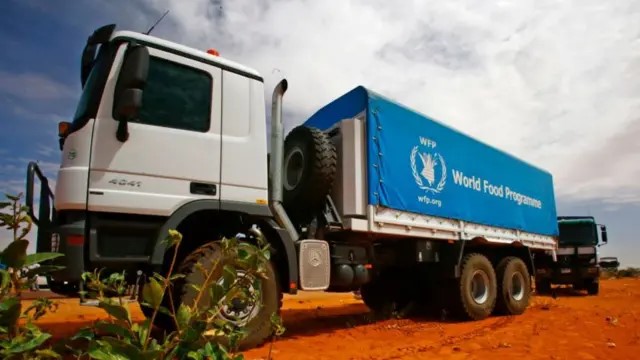On Monday night, June 2, 2025, a United Nations humanitarian convoy was ambushed near Al-Koma in North Darfur, Sudan, resulting in the tragic deaths of five Sudanese aid workers and injuries to several others. This devastating attack targeted a 15-truck convoy, organized by the World Food Programme (WFP) and UNICEF, carrying essential food and nutritional supplies from Port Sudan to El-Fasher—a city under siege by the Rapid Support Forces (RSF) since May 2024 and grappling with severe famine. This marked the first UN attempt in over a year to deliver aid across the 1,800-kilometer route to El-Fasher, where hundreds of thousands face starvation.
The assault, suspected to be a drone strike, incinerated multiple trucks and destroyed critical humanitarian supplies, halting aid delivery to vulnerable families in El-Fasher, the last major Sudanese military stronghold in Darfur. Both the Sudanese army and the RSF traded accusations, with the RSF claiming the convoy was hit by a military aircraft in a “pre-planned attack,” while the army pointed to RSF assault drones. UN spokesperson Stéphane Dujarric described the attack as a “horrendous” violation of international humanitarian law, noting, “It was an air attack, most likely drones, but we don’t know who was responsible.” The UN has called for an urgent investigation into the incident.
The convoy’s route was shared with both warring parties in advance, and the trucks were parked, awaiting clearance, when the attack occurred. This incident is part of a disturbing pattern of attacks on humanitarian operations amid Sudan’s ongoing civil war, which erupted in 2023 between the Sudanese Armed Forces and the RSF. Recent attacks include the shelling of WFP facilities in El-Fasher and a drone strike on a hospital in North Kordofan. The conflict has displaced over 13 million people, with 4 million fleeing to neighboring countries, and has exacerbated Sudan’s humanitarian crisis, pushing parts of the country into famine.
The attack underscores the escalating challenges of delivering aid in Sudan, where the civil war has created the world’s worst humanitarian crisis. El-Fasher’s siege has left civilians in dire need, with malnutrition and starvation threatening countless lives. The loss of aid workers and supplies further jeopardizes relief efforts, highlighting the urgent need for accountability and protection of humanitarian operations under international law.














Leave a comment